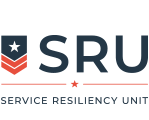Police officers face a unique stigma that makes it even more challenging for them to seek help when they are struggling with opioid use disorder and other drug addictions. Michael Genovese, M.D., J.D., chief medical officer for Acadia Healthcare, shared his clinical expertise with The Fix on why members of law enforcement are more susceptible to addiction than the civilian population, including what on-the-job risk factors can drive police officers to develop a substance use disorder. Several police officers supported his medical perspective by sharing stories about their struggles with opioid addiction during their law enforcement careers. It is crucial to remember that members of law enforcement are individuals who need to process trauma, stress, and anxiety just like members of the general population. Although many police officers might seem like they always have everything under control, addiction can affect anyone, no matter what they do for a living.
Recent Posts
- Acadia To Participate in Three Investor Conferences in March
- Acadia To Present at the 43rd Annual J.P. Morgan Healthcare Conference
- Acadia To Participate in the Stephens Annual Investment Conference
- Acadia Expands Its Comprehensive Treatment Center Network with Three New Acquisitions
- Seven Acadia Facilities Named in Newsweek’s Best Addiction Treatment Centers List
Categories
Archives
- February 2025
- January 2025
- November 2024
- October 2024
- September 2024
- August 2024
- June 2024
- May 2024
- April 2024
- March 2024
- February 2024
- December 2023
- November 2023
- October 2023
- September 2023
- June 2023
- May 2023
- April 2023
- March 2023
- February 2023
- January 2023
- December 2022
- November 2022
- September 2022
- July 2022
- June 2022
- April 2022
- February 2022
- January 2022
- December 2021
- November 2021
- October 2021
- September 2021
- August 2021
- June 2021
- May 2021
- April 2021
- March 2021
- February 2021
- December 2020
- October 2020
- September 2020
- July 2020
- June 2020
- April 2020
- November 2019
- August 2019
- July 2019
- June 2019






